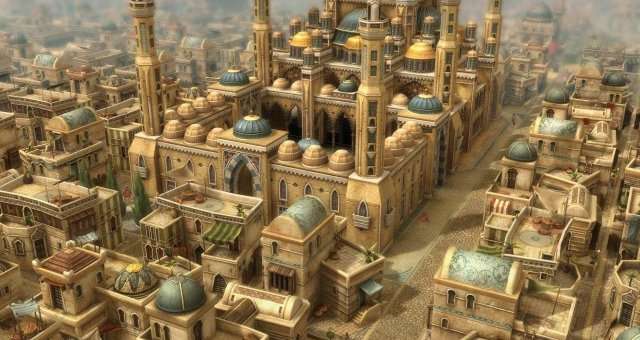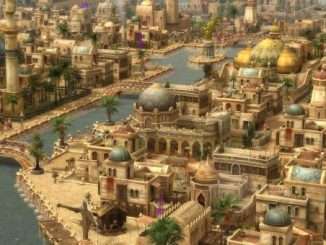
Before you play the Anno 1404 game, you will definitely want to know these simple but useful tips and tricks. If you have any tips feel free to share with us!
Things to Know Before Playing
Not everything you need (or want) will be available on every island, so there’s no point in looking for the perfect location that has everything. One thing you definitely want is the ability to produce your own tools, which are an important resource that is needed for basically everything and which require the presence of iron. If you can’t, you’ll need to buy them instead, and they’re both expensive and only ever available in limited amounts.
You will want to make sure that you have plenty of space for expansion. Your main island will be taking up both the lion’s share of your attention and eventually provide the majority of your income. You want somewhere that has enough usable space so that you can not only provide basic necessities to your citizens through farms and the local production of goods, but also eventually place all the buildings that your culture (I think there are two) requires to progress up the “civic development” scale. The civilian housing you place will upgrade itself based on how many of the required buildings you can place in their range and how many of the required goods you can provide and then keep providing while they are slowly being used up.
Ideally, you also want to be able to produce at least one luxury good for trading purposes. For much of the early game, taxes will not be able to make up for your expenses, so you need some other way to provide at least a limited income until you become more self-sufficient.
Once you’ve managed to get to that point, you’ll want to colonize additional islands to provide whatever resources and trade goods you can’t produce locally. You can set up automated shipping routes for that once you get there, so it’s fairly low maintenance. Then you can concentrate on just pushing your main colony’s development as high as possible and produce troops to conquer the map, or whatever other victory conditions you may have chosen at the start of the game.
- The “campaign” is really like a long tutorial. Some people like it and some don’t. The main game is actually just starting your own scenarios and playing them for as long as you can stand to, like Sim City.
- Unlike Sim City, there’s no zoning, if you’re familiar with that. This is very similar to Caesar / Pharaoh style games.
- The main thing is just getting your typical villagers to tier up so you get more of higher tier villagers, which unlocks new buildings.
- Each tier has needs, and you’ll need to manufacture those needs to get them to advance, and continue to balance that as you grow more people and tier up those people too.
- You generally want to have a huge residential area with all those things, and then have industry balanced around that which generates the things you need.
- A big thing is creating shipping lanes between islands, so you can build a “colony” on an island that exists purely to generate a resource that you then ship back to your main continent to fulfill a need and tier up your citizens.
- IIRC there’s a fan patch out there that fixes a whole lot of minor bugs and errors, like incorrect tooltips and such. Worth looking into.
- Citizens use your resources to upgrade their houses! This can be a pain when you’ve just started, and more importantly, there’s an option to temporarily block them from upgrading if you’re running low on materials.
- Check the tax/happiness window. It has a colored happiness scale – you want to set your taxes at the top end of green, otherwise you’re wasting potential income. IIRC raising taxes to next color is another way to temporarily block citizen upgrading.



Be the first to comment